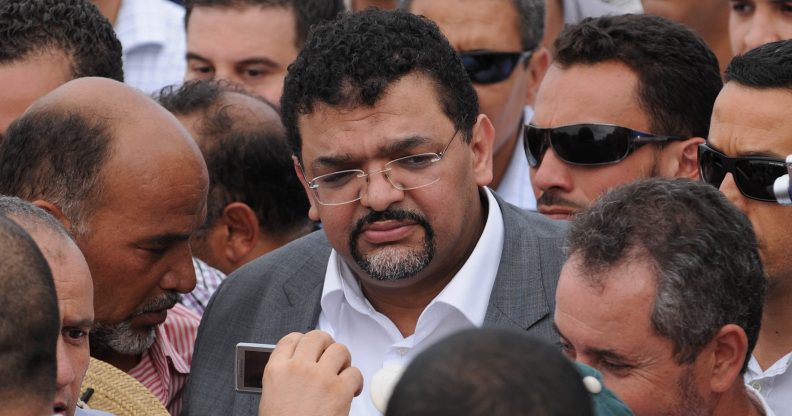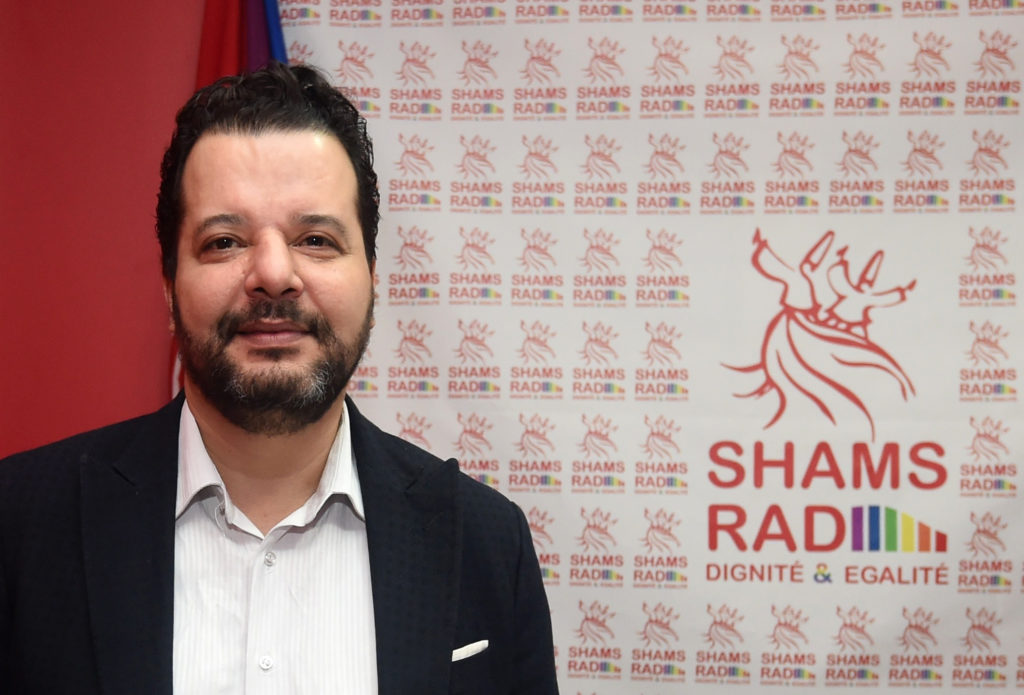Tunisian government emphatically denies they recognise same-sex marriage and want you to know they still hate gay people

Lotfi Zitoun, the 55-year-old local affairs minister in Tunisia, denied reports that marriage equality will be enshrined in the state. (SALAH HABIBI/AFP via Getty Images)
Lotfi Zitoun, the 55-year-old local affairs minister in Tunisia, denied reports that marriage equality will be enshrined in the state. (SALAH HABIBI/AFP via Getty Images)
Lawmakers in the Republic of Tunisia gave a sharp rebuke Tuesday to reports that the country has recognised marriage equality, to the lack of surprise for LGBT+ activists and human rights groups.
Speaking at a parliament hearing, local affairs minister Lotfi Zitoun debunked the claims seeded by the Arab nation’s leading LGBT+ group Association Shams.
The group claimed that Tunisian authorities rubber-stamped a marriage in France between a French national and a Tunisian citizen, with it being officially noted in the birth certificate of the Tunisian registry.
But activists expressed cautious optimism. With it still being illegal to be gay and imprisonable of up to three years, they wearily stressed, it appeared to be less a paving of a path towards equality and more an administrative error.
Zitoun doubled down on this, stressing that as the marriage did not occur in Tunisia, the state would not recognise it, local media said, as dubbing the reports “fake”.
‘This dashes the hopes of LGBT couples in the Arab world that their love could finally secure recognition’.
LGBT+ rights campaigner Peter Tatchell told the Jerusalem Post Wednesday that “this ruling is disappointing but not unexpected.
“A same-sex marriage conducted in France appeared to be recognized by default by the Tunisian authorities, possibly due to an administrative oversight.”
He added: “The Tunisian government has now confirmed that it does not recognize such marriages.
This dashes the hopes of LGBT couples in the Arab world that their love could finally secure recognition and rights in one of their own countries.
“Despite this setback, the global battle for LGBT+ rights continues and there will eventually come a day when Arab and Muslim countries will grant same-sex marriage and other LGBT+ rights.”
Tunisia minister quashes reports that marriage equality has been recognised.
It comes after Zitoun neither confirmed nor denied the marriage when initially confronted by the media.
“There is no centralisation of civil status data at the ministry of local affairs. We are therefore in the process of verifying the information,” said Zitoun.
But he added: “If it is true, know that it is against the law.
“French law does not allow recognition of same-sex marriage by Maghreb countries. There was a precedent, an error committed by the municipality of Tunis.
“And it has been rectified.”
Tunisian lawyer Mounir Baatour, president of Association Shams, nevertheless celebrated it as a momentous achievement for LGBT+ rights in the Arab-Muslim world.

Tunisian lawyer Mounir Baatour, president of Association Shams, which supports the depenalization of homosexuality in Tunisia (FETHI BELAID/AFP/Getty)
The end of a yearslong and topsy-turvy legal battle, he said it was a “success of which I am very proud of”.
“To my knowledge, Shams is now the only [LGBT+] legal association in the Arab-Muslim world.
“This is not nothing and offers us hardly believable opportunities, sometimes beyond our borders.”
While the north African country’s president Kaïs Saïed opposes decriminalising homosexuality, its prime minister Elyes Fakhfakh has softly spoken in favour of LGBT+ rights at times, capturing a Tunisia still grappling with its past post-revolution.

